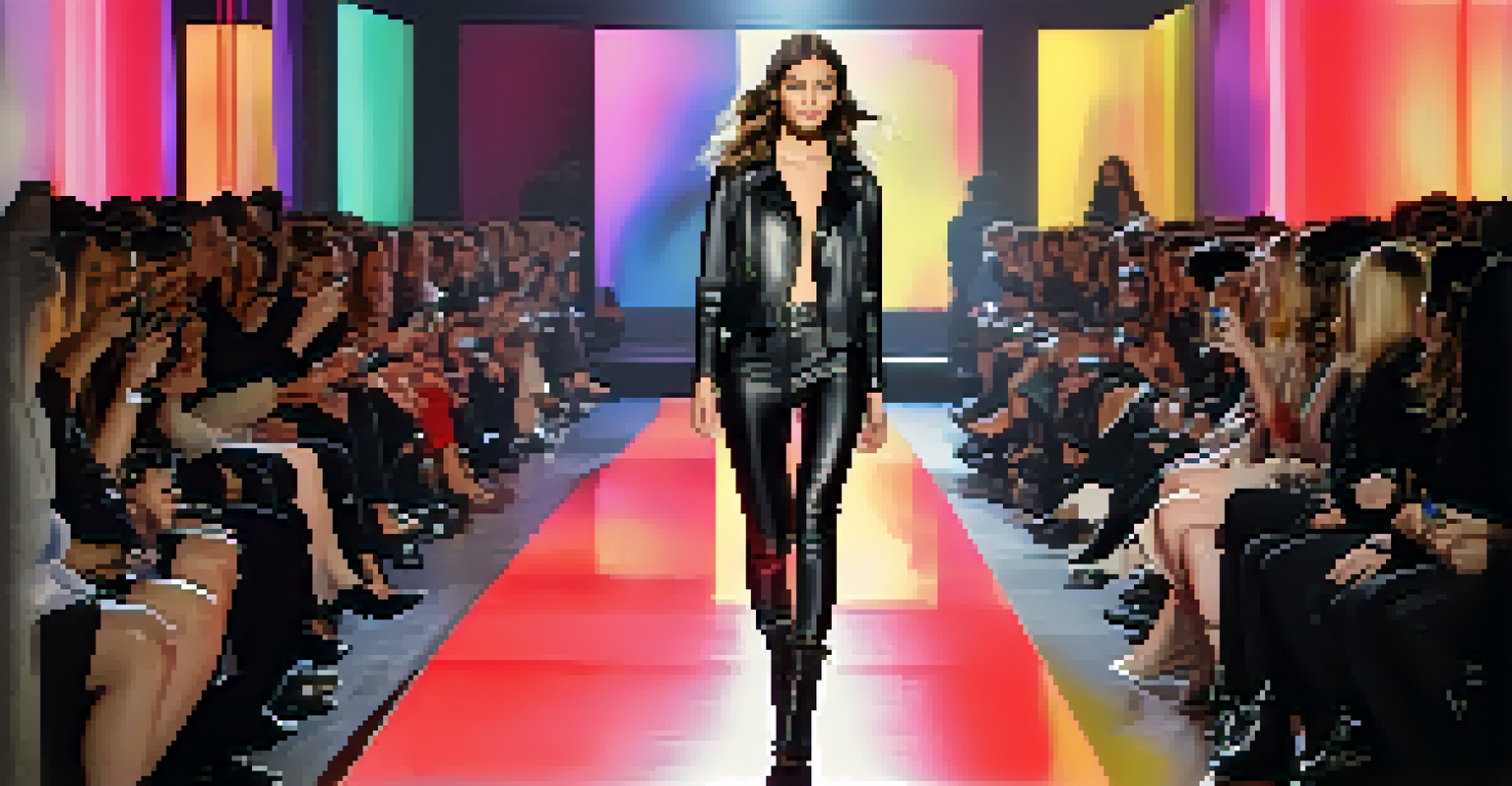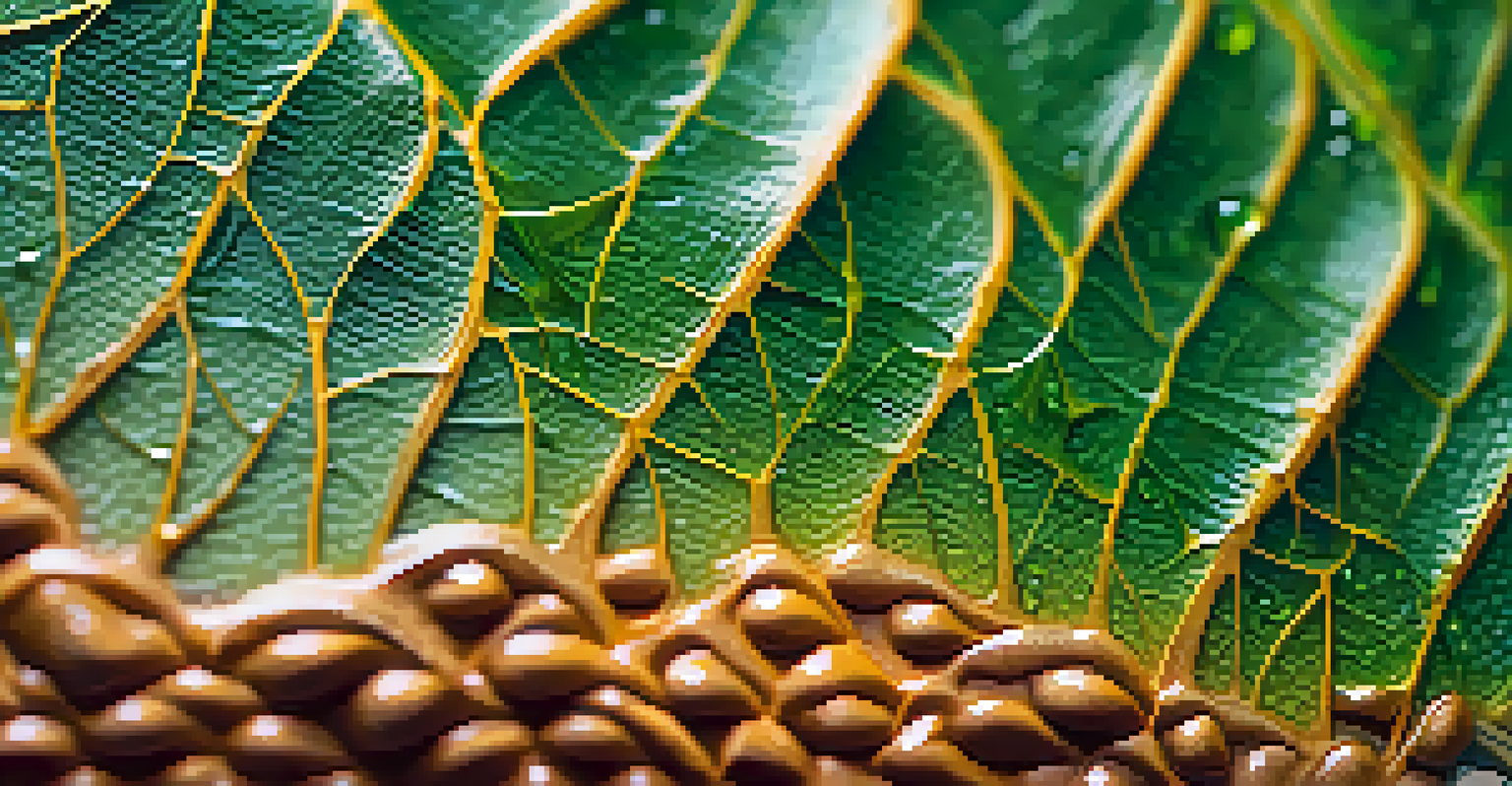Vegan Leather: A Sustainable Alternative for Fashion

What is Vegan Leather and How is it Made?
Vegan leather, often referred to as faux leather, is a synthetic or plant-based alternative to traditional animal leather. It can be made from various materials, including polyurethane (PU), polyvinyl chloride (PVC), and innovative plant-based sources like pineapple leaves and apple peels. This diversity allows for a wide range of textures and finishes, making it a versatile option in fashion.
The future will be green, or not at all.
Manufacturers are increasingly adopting eco-friendly practices by utilizing recycled materials in the production of vegan leather. For instance, many brands now source their PU from recycled plastics, reducing waste and minimizing the environmental impact. This shift not only helps in conserving resources but also appeals to environmentally-conscious consumers who are looking for sustainable options.
As the demand for vegan leather continues to rise, brands are experimenting with new methods to enhance its durability and overall quality. This leads to products that not only look good but also perform well over time, challenging the perception that vegan leather is inferior to its animal-derived counterpart.
The Environmental Benefits of Vegan Leather
One of the most significant advantages of vegan leather is its potential to reduce environmental harm compared to traditional leather. The leather industry is notorious for its resource-intensive practices, including water usage and chemical treatment processes that can pollute water systems. In contrast, many vegan leather options use less water and fewer harmful chemicals, making them a more sustainable choice.

Moreover, the production of vegan leather can generate fewer greenhouse gas emissions. For instance, plant-based leathers, such as those derived from mushrooms or cork, often have a lower carbon footprint than animal leather. This means that by choosing vegan leather, consumers can contribute to a reduction in climate change-related impacts.
Vegan Leather: A Sustainable Choice
Vegan leather offers a more eco-friendly alternative to traditional leather, utilizing less water and fewer harmful chemicals in its production.
However, it's essential to note that not all vegan leathers are created equal. Some synthetic options, particularly those made from PVC, can still pose environmental challenges. Therefore, it’s important for consumers to research and choose brands that prioritize sustainability in their production processes.
Vegan Leather vs. Traditional Leather: A Comparison
When comparing vegan leather to traditional leather, it's crucial to consider factors like durability, maintenance, and aesthetics. Traditional leather is often revered for its long-lasting nature and timeless appeal, but vegan leather is quickly catching up in these areas. Advances in technology have led to vegan leathers that are not only durable but also come in a variety of chic styles.
Fashion is about something that comes from within you.
Maintenance is another area where vegan leather shines. Unlike traditional leather, which requires specific cleaning and conditioning products to maintain its appearance, vegan leather is often easier to clean and care for. A simple wipe with a damp cloth can keep it looking fresh, making it a practical choice for busy lifestyles.
However, some traditionalists argue that nothing can quite replicate the luxurious feel of genuine leather. While this may hold some truth, the increasing quality of vegan alternatives means that consumers can enjoy stylish options without compromising their values or the environment.
The Rise of Vegan Leather in Fashion Industry
The fashion industry has seen a remarkable shift towards sustainable practices in recent years, and vegan leather is at the forefront of this movement. Many high-profile designers and brands are embracing vegan materials, showcasing them on runways and in collections. This trend not only reflects changing consumer preferences but also sets a new standard for ethical fashion.
As consumers become more aware of the environmental and ethical implications of their purchases, the demand for vegan leather continues to grow. Fashion labels that prioritize sustainability are finding themselves in high demand, as shoppers increasingly seek out products that align with their values. This transformation is reshaping the industry landscape.
Fashion's Shift Towards Sustainability
The fashion industry is increasingly embracing vegan leather, with many brands prioritizing ethical practices to meet consumer demand for sustainable options.
Additionally, collaborations between luxury brands and sustainable material innovators are becoming more common. These partnerships drive the development of cutting-edge vegan leathers that appeal to a broader audience, proving that style and sustainability can go hand in hand.
Popular Vegan Leather Brands to Consider
If you're looking to incorporate vegan leather into your wardrobe, there are plenty of brands to explore. Established names like Stella McCartney have long championed cruelty-free fashion, offering chic alternatives that don't compromise on style. Their innovative designs demonstrate that luxury and sustainability can coexist beautifully.
Emerging brands, such as Matt & Nat and ALOHAS, also focus on creating stylish vegan leather products. These companies prioritize eco-friendly materials and ethical production methods, making them great choices for conscious consumers. Each brand brings its unique flair, ensuring that there's something for everyone.
As the market continues to grow, new players are consistently entering the scene, expanding the options available to consumers. This vibrant landscape means that finding the perfect vegan leather piece to suit your taste has never been easier.
Challenges Facing Vegan Leather Production
Despite its many advantages, the production of vegan leather is not without challenges. One major concern is the reliance on fossil fuels for synthetic materials, particularly in the case of PVC and some PU options. These materials can contribute to environmental issues, highlighting the importance of choosing sustainably-made alternatives whenever possible.
Additionally, as the demand for vegan leather rises, so does the need for transparency in sourcing and production processes. Consumers are becoming more discerning, seeking out brands that are upfront about their practices. This push for transparency is essential for ensuring that the vegan leather market remains genuinely sustainable.
Challenges in Vegan Leather Production
Despite its benefits, the production of vegan leather faces challenges, including reliance on fossil fuels and the need for greater transparency.
Finally, the market is still navigating the balance between affordability and sustainability. While many consumers desire eco-friendly products, they also want them at accessible price points. Brands are challenged to innovate while keeping costs manageable, ensuring that sustainable fashion is within reach for everyone.
The Future of Vegan Leather in Sustainable Fashion
The future of vegan leather looks promising as innovation continues to drive the industry forward. Researchers and designers are exploring new materials, such as lab-grown leather and bio-based alternatives, which could further reduce the environmental impact of the fashion industry. These advancements hold the potential to reshape how we think about leather altogether.
Moreover, as consumer awareness around sustainability increases, brands that prioritize eco-friendly practices will likely thrive. This shift not only benefits the environment but also encourages more companies to adopt sustainable practices in their production processes. The demand for vegan leather is set to rise even further, making it a staple in modern wardrobes.

Ultimately, the growth of vegan leather represents a broader movement towards ethical and sustainable fashion. As we collectively strive for a greener future, embracing vegan leather as a stylish alternative will play a crucial role in shaping the industry's landscape for generations to come.